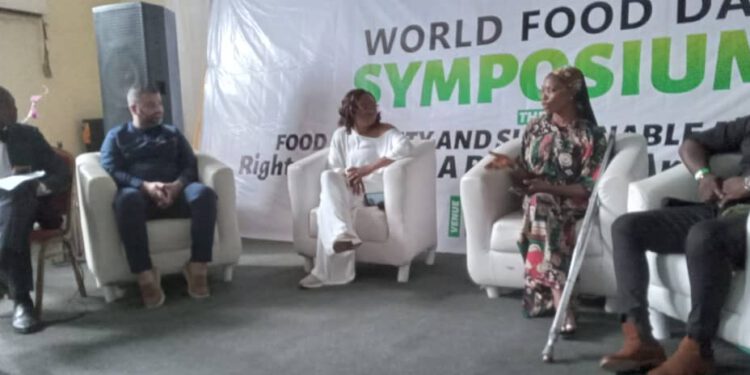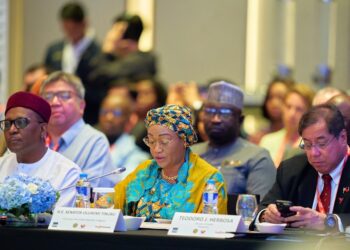Governments at all levels in Nigeria have been urged to renew their commitment and work closely to curb the menace of hunger and poverty affecting many parts of the country.
The call came as part of submissions at a symposium organized by the Foodclique Support Initiative in commemoration of this year’s World Food Day, held at the FUNPLEX Event Centre, CMD Road, Magodo, Lagos.

During the event, the guest speaker, Halimah Mustapha, Commercial Financial Controller at Unilever Nigeria Plc, expressed concern over Nigeria’s ranking of 110th out of 127 countries in the Global Hunger Index.
She described the nation’s ranking as worrisome, especially given its status as the most populous country in Africa. However, she noted that hunger is a global issue, not unique to Nigeria.
Mustapha also urged Nigerians to reduce food wastage and consider family planning as part of efforts to combat hunger and poverty.

She pointed out that Nigeria’s population, which she believes exceeds 300 million, needs to be managed more effectively, suggesting that Nigeria could learn from China’s example in controlling population growth.
Akin Alabi, founder of Corporate Farmer, emphasized the importance of individuals engaging in agriculture rather than leaving it solely to the government. He suggested that people can grow what they eat within their homes.
Jerry Apeh, MD/CEO of Unique Hybrid Agro Enterprises, called on the government to make farming more appealing to the public.
Meanwhile, renowned chef Samson Balogun highlighted the role of family in addressing daily needs and stressed the importance of government policies that empower farmers and address climate change challenges.

Ibrahim Onilegbale concluded by aligning the mission of Foodclique with the United Nations’ Sustainable Development Goal 2, which aims to end hunger.
He noted that the organization seeks to bridge the gap between the government, private sector, and those in need.
One of the challenges we face is food security, which requires a comprehensive food system encompassing farming, harvest, distribution, and the prevention of wastage throughout the process.

Global food waste is said to be about 30-40% of global production.
Abosede Fadipe, Director of Food Sourcing and Fundraising, is committed to ensuring that we add value to the nation, where no one goes to bed hungry.
She provides perishable food items to vulnerable communities nationwide, addressing specific needs during different seasons.
Over the years, millions in communities across Ondo, Ogun, Lagos, Abia, Enugu, and Niger states have benefited from food support.
Korede Alabi, Chief Financial Officer, stated that the gathering is a testament to the collective determination to tackle one of the greatest challenges to humanity.

“Food is a cornerstone of human dignity, and access to food improves the quality of life for people,” he said.
He also appreciated the sponsors, acknowledging their contributions toward creating a world free of hunger.
World Food Day, celebrated every October 16th, is intended to raise global awareness of issues related to hunger and food security. The day also serves to promote stronger policies and initiatives aimed at ending hunger and building sustainable food systems worldwide.





















